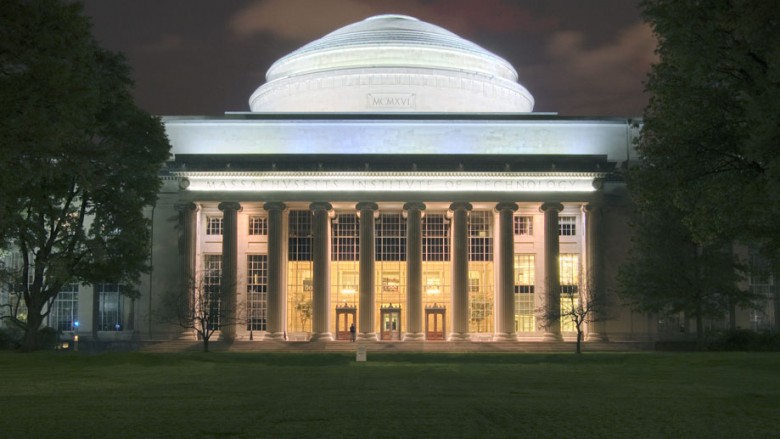M.I.T. research finds special needs students benefit from charter school education
By State House News Service | December 8, 2015, 6:24 EST
 M.I.T. dome at night (Wikimedia)
M.I.T. dome at night (Wikimedia) STATE HOUSE — Special education students and English language learners enrolled at charter schools are more likely to earn higher scores on the state’s standardized tests and reach certain other achievement markers than their peers in district schools, according to a study of Boston students presented Monday.
The study, conducted by Massachusetts Institute of Technology researcher Elizabeth Setren and discussed at an education conference held by MIT and the Federal Reserve Bank of Boston, found that special education students and English language learners in Boston charter schools experienced larger test score gains than members of the same groups in the city’s traditional public schools.
“Charters generate substantial gains for special needs students in math and English standardized exam scores, English proficiency, and college preparation outcomes,” the study concluded. “Even the most disadvantaged special needs students perform better in charter schools compared to traditional public schools.”
As the debate concerning charter schools has progressed on Beacon Hill, lawmakers, educators and parents have clashed over whether expanding access to charters or investing more in traditional district public schools guarantees an effective education for all students, including those who are disadvantaged or struggling.
The Senate is expected to decide next month whether it will take up charter school legislation. Charter supporters last week submitted 73,000 signatures to the state elections division in a step toward securing a spot on the 2016 ballot for an initiative that would allow more charter schools.
Charter school opponents say the privately run, publicly funded schools can craft policies that push out students who are more difficult to educate, skewing achievement statistics. Proponents say the innovative approaches charter schools can take lead to high-quality education.
“A large body of evidence suggests that urban charters generate large academic gains for lottery applicants,” Setren writes. “At the same time, critics of charter schools not only note that special needs students appear underrepresented in charters, but they also question whether charters serve these students well.”
Setren’s study followed applicants for 30 Boston charter schools, both those who were accepted via lottery and those who were not, throughout their Massachusetts public school experience. It found that, in Boston charter schools, 1.41 times as many special education students and 1.42 times as many English language learners scored “advanced” or “proficient” on MCAS mathematics tests than their peers in district schools.
On the MCAS English exams, rates of advanced and proficient scores at charter schools were 1.37 times higher for special education students and 1.36 percent higher for English language learners.
The study found that special education students in charter schools were 44.2 percent less likely to graduate high school in four years, but that there was no statistically significant difference in five-year graduation rates for special education students between charter and district schools.
Special education students attending charter schools are also more likely to meet the math and English proficiency requirement for high school graduation, become eligible for a state merit scholarship, take an Advanced Placement exam and score higher on the SAT. Charter school special education students were not significantly more likely to earn a passing score on the AP exams, according to the study.
Setren writes that she does not have enough evidence to definitively state which school characteristics better suit special needs students, but that higher staff-to-student ratios, extra learning time and intensive tutoring are likely important factors.
— Written by Katie Lannan
Copyright State House News Service











